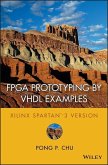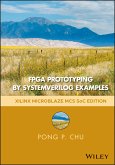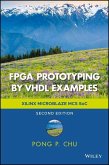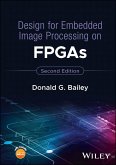FPGA Prototyping Using Verilog Examples will provide you with a hands-on introduction to Verilog synthesis and FPGA programming through a "learn by doing" approach. By following the clear, easy-to-understand templates for code development and the numerous practical examples, you can quickly develop and simulate a sophisticated digital circuit, realize it on a prototyping device, and verify the operation of its physical implementation. This introductory text that will provide you with a solid foundation, instill confidence with rigorous examples for complex systems and prepare you for future development tasks.
Dieser Download kann aus rechtlichen Gründen nur mit Rechnungsadresse in D ausgeliefert werden.









